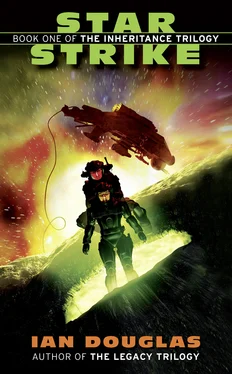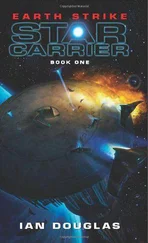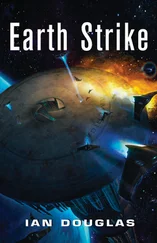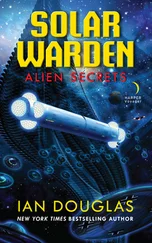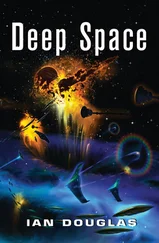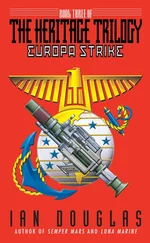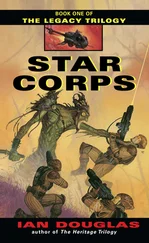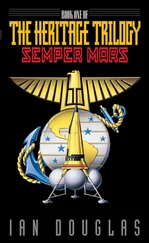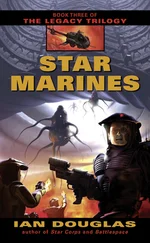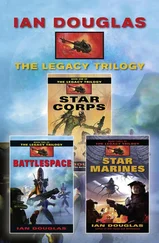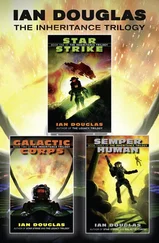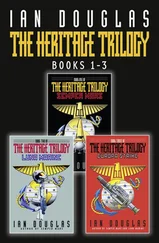As Cara and Herschel began preparing the virtual space for the electronic arrival of the Advisory Council, Alexander allowed his implant processors to cull through the data, reviewing past, present, and several darkly disturbing possible futures. As the data fell into place, he allowed himself a moment’s reverie, induced by the electronic flow from the local AI through the mingling of organic and inorganic regions of his brain.
Some five hundred thousand years ago, an advanced non-human intelligence—robotic intelligences unimaginatively dubbed variously the “Builders” or “the Ancients” by popular histories and the entertainment and news sims—had created an empire spanning all of today’s human space, and presumably extending far beyond. The Builders had terraformed Mars, and, for a brief time, at least, employed reasonably bright bipedal creatures imported from the third planet as workers—genetically altering them to boost their intelligence, and in doing so creating the species that later would call itself Homo sapiens .
But the Xul had attacked the Builders, however, the Xul or their militant predecessors. Ruins on Mars and on Earth’s Moon, on Chiron in the Alpha Centauri system, and on numerous other worlds attested to the violence and the completeness of the genocidal Xul campaign. One of their enormous ships, part machine and part downloaded intelligence, had been badly damaged in the conflict and crashed into the ice-locked world-ocean of Europa. The Builders, who called the invaders “The Hunters of the Dawn,” were destroyed, their empire reduced to broken ruins and rubble on a thousand far-strewn worlds. Of the Builders themselves, apparently, nothing had survived. Their genetically altered creations, however, had escaped the notice of the Xul, and survived, even flourished, on Earth.
Half a million years later, and some ten to fifteen thousand years ago, another spacefaring civilization had entered Earth’s Solar System. The An were in the process of establishing a much smaller, more modest interstellar empire, one embracing a few score star systems scattered across perhaps fifty light-years. They’d planted colonies on Earth and on Earth’s Moon, mined precious metals, and enslaved human nomads to raise food and work the mines. In making slaves, farms, and stone cities, they’d managed to become the prototypes of the gods and goddesses of ancient Mesopotamia. But then the An had attracted the notice of the Xul—the name itself had survived in the Sumerian language as one meaning “demon”—and the An, too, were annihilated.
The Xul had missed one Earthlike world populated by the An, however. The satellite of a gas giant well outside its sun’s habitable zone, perhaps it had been overlooked. On Ishtar, in the Lalande 21185 system eight and a half light-years from Sol, a few An and their human slaves had survived, remaining unnoticed in the holocaust when their technological infrastructure collapsed. On Earth, again, the An all were killed, but humans had survived to wonder about the cyclopean and monolithic ruins at places like Baalbek, submerged Yonaguni, and Tiahuanaco, and to tell stories of a universal deluge and the wrath of the gods.
Thousands of years passed, and humans on Earth again developed high technologies, this time on their own, and again they walked on other worlds. They found mysterious ruins on Mars and on Luna, and a few devices miraculously intact. They found the lost Xul ship, poetically dubbed “The Singer” for its eerie and insane radio transmissions, submerged deep beneath the Europan ice, and on Ishtar they found descendents of both An and humans.
From that time on, late in the twenty-second century, Humankind had existed in a kind of secretive balance with the Xul, who, it turned out, were still very much in existence after all those millennia. Like mice or cockroaches living in the walls of a very large dwelling, human starfarers sought to improve their own lot while avoiding the notice of the heavy-footed giants living nearby. Archeological teams spread out among the nearer star systems, seeking remnants of lost technologies left by the Builders, by the An, and by other civilizations. Eventually, another alien species had been discovered, the amphibian N’mah, living within an enigmatic Ancient-built stargate in the Sirius system.
In 2170, Marine and Navy forces at the Sirius Stargate had destroyed a Xul ship as it came through the Gate. In 2314, another Xul ship had appeared, this time within Earth’s solar system … and Earth had very nearly died. In 2323, a Navy-Marine task force had proceeded through the Sirius Gate to another, unknown and distant star system, Night’s Edge, using a freighter-load of sand scooped from the surface of Mars and accelerated to close to the speed of light to eliminate a Xul fleet and planetary base. As Cara had pointed out, the obliteration of that Xul outpost appeared to have wiped out any data the Xul had acquired pertaining to Humankind or Sol … and bought Earth a precious few more centuries to prepare for her next encounter with the Xul threat.
That there would be another encounter, Alexander had no doubt whatsoever. Since the early twentieth century, Earth had been broadcasting her presence; Sol now rested at the center of a sphere over 1,700 light-years across, a pulsing, restless bubble of electromagnetic radiation at radio wavelengths expanding outward at the speed of light—a certain indicator of intelligent, technic life at its center.
Alexander allowed himself a mental grin at the memory of an old joke. Perhaps it wasn’t an indicator of intelligent life, given the nature of much of the entertainment content of that bubble. Still, anyone with the appropriate technological know-how could hear that babble of noise, and know that technic civilization was responsible.
And The Singer had broadcast something to the stars back in 2067 when it was freed from its icy tomb. No, there was no way Humanity could keep its existence secret much longer.
And how was Humankind to survive in a contest against a technology half a million years more advanced?
It was a problem the Marine Corps had been struggling to resolve since the twenty-first century. So far, for the most part, they’d been able to fight isolated and tightly controlled battles, applying tactics that emphasized Marine strengths while sidestepping Xul technology. As commanding officer of the 1st Marine Interstellar Expeditionary Force, Alexander was responsible for keeping on top of the Xul threat, and keeping the Commonwealth government informed of any changes in the situation.
And the situation certainly had changed now, with the taking of the Argo .
“General?” Cara said, interrupting increasingly grim thoughts. “Will you want your full filters for the meeting?”
“Eh? What was that?”
“Your e-comm filters, sir. The delegates will begin linking in before too long. How do you want to be dressed?”
He grimaced. Personal filters were an important part of modern electronic communications. Within a noumenal setting—literally inside the participants’ heads—your personal icon could take on any appearance desired, anything within the programming range of the AIs giving the encounter substance. Filters allowed the image projected into the group mind’s virtual space to be of your own choosing, with apparent dress, body language, even inflection of voice under your control.
He didn’t like it, though. He never had. Though e-filters had been around for centuries, a necessary outgrowth of noumenal projection, they still seemed … dishonest, somehow, a kind of social white lie.
“You can’t,” Cara told him, a disapproving tone to her words, “receive the Defense Advisory Council like that .”
Mentally, he looked down at himself. As usual, he was projecting his real-world appearance into the galactic imagery … which, at the moment, was of a lean, middle-aged man with graying hair and a dour expression. He was also naked.
Читать дальше
